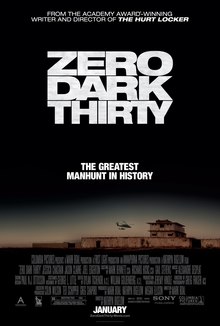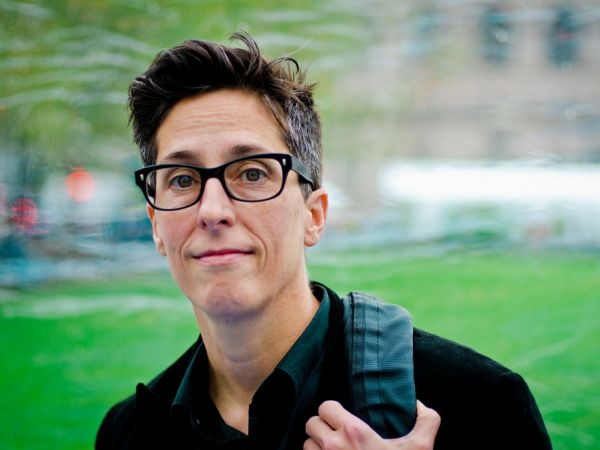Maya, the protagonist of Zero Dark Thirty, is so driven by her pursuit of "UBL" (Usama bin Laden), her career crowds out any time for a personal life. The structure of the film reinforces this attitude, giving us numerous shots of Maya working at her desk and hardly any of Maya in her off hours (if she even has any). This dedicated focus on her career makes Maya an unusual cinematic female character.
Way back in 1985 (the year after I was born), the writer Alison Bechdel noted the unfortunate trend of women in movies being defined by, and often existing only for, the men in (or not in) their lives, and developed the "Bechdel Test" as a way of evaluating the portrayals of women in movies. The test has only three steps:
(1) it has to have at least two women in it, who (2) who talk to each other, about (3) something besides a man.
This doesn't seem like a particularly high bar, but many movies have failed the Bechdel Test, including the recent films Silver Linings Playbook, Anna Karenina, Django Unchained, The Avengers, and The Amazing Spider-Man.
(Note: The Bechdel Test isn't meant to comment on the quality of a given movie; excellent movies can fail it, and terrible ones can pass. It's mainly used to draw attention to a particular aspect of movies.)
So, how does Zero Dark Thirty (ZDT) fare? Perhaps surprisingly for a catch-the-terrorists-at-all-costs movie with a suspenseful action climax, it fares quite well on the Bechdel Test. It's perhaps worth noting that ZDT was directed by a woman, Kathryn Bigelow, although her previous film, The Hurt Locker, had barely any female characters at all, and the only one important to the story is defined almost exclusively by her relationship to the film's male protagonist.
 |
| Jessica (Ehle) |
 |
| Maya (Chastain) |
Most of the scenes in ZDT that satisfy the Bechdel requirements feature Maya (Jessica Chastain), and a character named Jessica, who is played by Jennifer Ehle. Both women are CIA analysts working to uncover the names and locations Al-Qaeda members, and rather than assessing the prospects for male companionship in their office, they spend most of their time discussing how to find and eliminate terrorists. They seem to have little time for anything else in their lives.
Interestingly, one conversation between Maya and Jessica does veer into the characters' personal lives, and it becomes like a bizarro Bechdel test. It's almost the only time personal lives come up in the entire movie (we later learn that Jessica is a mother), and in a further reversal of many movies, watching those two women talk about interrogation techniques and intelligence gathering is normal, while Jessica asking if Maya has a boyfriend feels strange and out of place, like I imagine two women discussing enhanced interrogation techniques might feel in a Nicholas Sparks novel.

